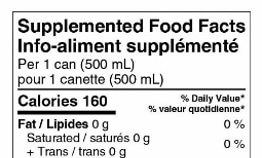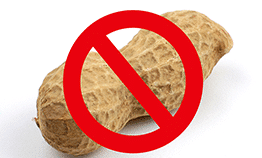What is an energy drink?
Making sense of the drink that fuels us

Keeping Canadians informed

The total amount of caffeine from all sources

All ingredients

A Supplemented Food Facts table showing the amount of calories, nutrients and supplemental ingredients in the product

Allergen information, if any

How much sugar is in an energy drink?
Energy drinks come in both regular and sugar-free options, giving Canadians a wide range of products to choose from. While the sugar levels may vary, for those that contain sugar, it is at levels similar to other sugar-sweetened beverages.
Like mainstream foods and beverages, nutrient and ingredient information (including the amount of sugar) can be found on the label. Energy drinks have an ingredients list that follows the same format as other beverages, but unlike mainstream foods and beverages, energy drinks have a Supplemented Foods Facts table instead of a Nutrition Facts table. The Supplemented Foods Facts table contains much of the same information as the Nutrition Facts table, but also contains information on supplemental ingredients like caffeine, taurine, herbs and nutrients added to the energy drink.
Are energy drinks and
energy shots the same?
Energy shots are not energy drinks. These other products are not considered supplemented foods by Health Canada, and are regulated as non-food products. Energy shots are typically of smaller volume and contain, on average, a caffeine concentration in excess of 3,000mg/litre, i.e. 8 to 10 times higher than what Health Canada permits in supplemented foods.

